My rules:
- Only one song per artist/group
- The song must be released that specific year
- Songs from live albums not allowed
- Restricted to only 20 songs
–
1969 was another great year in music, here are my 20 chosen songs (and those who came close).
–
-
Gimme Shelter – The Rolling Stones
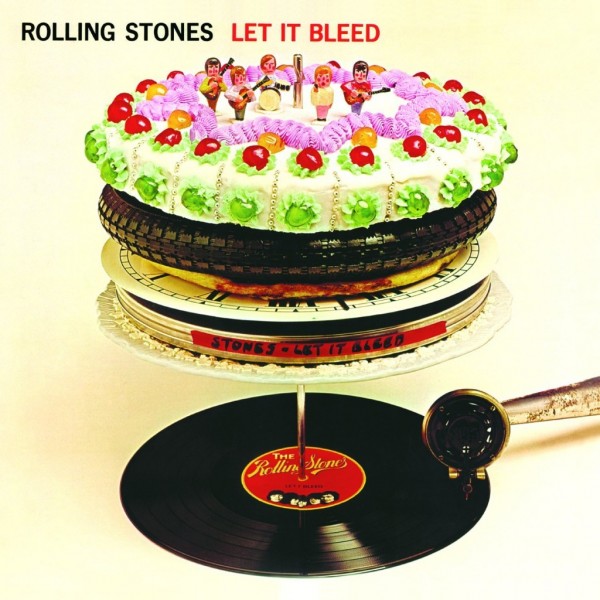
[vc_row][vc_column][vc_message message_box_color=”mulled_wine” icon_fontawesome=”fa fa-quote-left”]One of the greatest rock songs from any artist, “Gimme Shelter” is a glowering, snarling beast of a recording. It tiptoes in on one of music’s most recognizable chord-based riffs, ghostly “oooh’s,” and percussion ratcheting up the tension. When the full band enters—sinister low piano notes, fuzzy harmonica, organ chimes—it grabs you by the lapels and shakes you, begging you for shelter from an ominous storm.
-Bill Janovitz (Rocks Off: 50 Tracks That Tell the Story of the Rolling Stones)
[/vc_message][/vc_column][/vc_row]It first appeared as the opening track on the band’s 1969 album Let It Bleed. Greil Marcus, writing in Rolling Stone magazine at the time of its release, said of it, “The Stones have never done anything better.”
The recording features Richards playing in his new open tuning on electric guitar. The recording also features vocals by Merry Clayton, recorded at a last-minute late-night recording session during the mixing phase, arranged by her friend and record producer Jack Nitzsche. Lisa Fischer was later recruited to perform the song during their concerts.
–
Oh, a storm is threat’ning
My very life today
If I don’t get some shelter
Oh yeah, I’m gonna fade away
–
–
-
Suspicious Minds – Elvis Presley
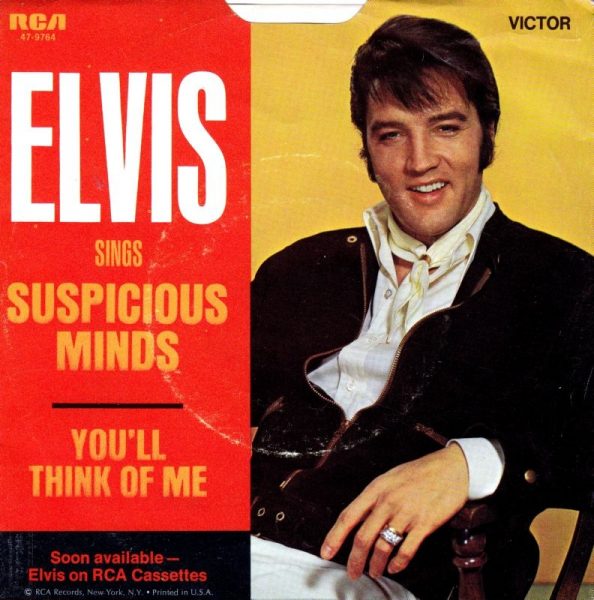
[vc_row][vc_column][vc_message message_box_color=”mulled_wine” icon_fontawesome=”fa fa-quote-left”]Recorded between four and seven in the morning, during the landmark Memphis session that helped return the King to his throne, “Suspicious Minds” — the final Number One single of his lifetime — is Presley’s masterpiece: He sings so intensely through the fade-out that his band returns for another minute of the tear-stained chorus.
–rollingstone.com[/vc_message][/vc_column][/vc_row]An American song written and first recorded by American songwriter Mark James. After James’ recording failed commercially, the song was handed to Elvis Presley by producer Chips Moman, becoming a number one song in 1969, and one of the most notable hits of Presley’s career. “Suspicious Minds” was widely regarded as the single that returned Presley’s career success, following his ’68 Comeback Special. It was his eighteenth and last number-one single in the United States. In 2004, Rolling Stone ranked it No. 91 on their list of the 500 Greatest Songs of All Time. Session guitarist Reggie Young played on both the James and Presley versions.
–
We’re caught in a trap
I can’t walk out
Because I love you too much, babyWhy can’t you see
What you’re doing to me
When you don’t believe a word I say?
–
–
[vc_row][vc_column][vc_message message_box_style=”outline” icon_fontawesome=”fa fa-link” css_animation=”bounceIn”]
Check out:[/vc_message][/vc_column][/vc_row]
-
Something – The Beatles
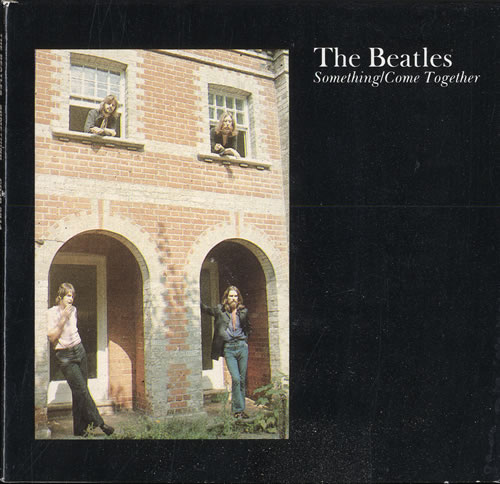 Written by George Harrison and released on the band’s 1969 album Abbey Road. It was also issued as a single coupled with another track from the album, “Come Together“. “Something” was the first Harrison composition to appear as a Beatles A-side, and the only song written by him to top the US charts before the band’s break-up in April 1970.
Written by George Harrison and released on the band’s 1969 album Abbey Road. It was also issued as a single coupled with another track from the album, “Come Together“. “Something” was the first Harrison composition to appear as a Beatles A-side, and the only song written by him to top the US charts before the band’s break-up in April 1970.
Writing in his book Revolution in the Head, critic and author Ian MacDonald described “Something” as “the acme of Harrison’s achievement as a writer”. MacDonald highlighted the song’s “key-structure of classical grace and panoramic effect”, and cited the lyrics to verse two as “its author’s finest lines – at once deeper and more elegant than almost anything his colleagues ever wrote”.
–
Something in the way she moves
Attracts me like no other lover
Something in the way she woos meI don’t want to leave her now
You know I believe and how
–
– -
Bird On a Wire – Leonard Cohen
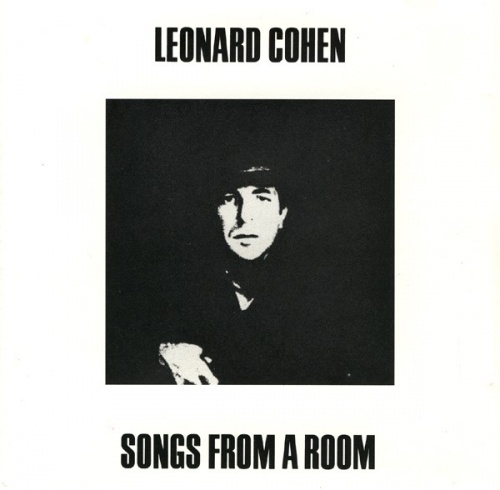
One of Leonard Cohen‘s signature songs. It was recorded 26 September 1968 in Nashville and included on his 1969 album Songs from a Room.
Cohen has described “Bird on the Wire” as a simple country song, and the first recording, by Judy Collins, was indeed done in a country setting. He later made various minor changes, such as the modifications present on Cohen Live. Different renditions are included on all of his live albums. On occasion he also performed Serge Lama‘s French version, “Vivre tout seul”, in concert.
–
Like a bird on the wire,
like a drunk in a midnight choir
I have tried in my way to be free.
–
– -
Kathleen – Townes Van Zandt
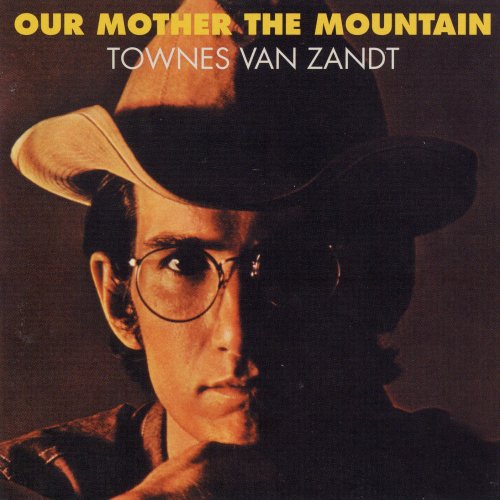
[vc_row][vc_column][vc_message message_box_color=”mulled_wine” icon_fontawesome=”fa fa-quote-left”]The tense emotional apocalypse that is “Kathleen” begins with the typically Townes-ian sentiment: “It’s plain to see the sun won’t shine today/ But I ain’t in the mood for sun anyway,” and circumstances only darken further from there. As the narrator wrestles with encroaching insanity, waves of pain and panic, and a seemingly malevolent natural world of roaring oceans, prophetic swallows and a menacing firmament, the only apparent respite is death or the titular Kathleen. As the song progresses, so too does the suspicion that these things are one in the same. This is Townes at his most harrowing — a beautifully and genuinely frightening window into a fractious, tortured psyche.
-Timothy Bracy And Elizabeth Bracy (stereogum.com)[/vc_message][/vc_column][/vc_row]From Our Mother the Mountain, the second album by country singer/songwriter Townes Van Zandt, released in 1969.
–
It’s plain to see, the sun won’t shine today
But I ain’t in the mood for sunshine anyway
Maybe I’ll go insane
I got to stop the pain
Or maybe I’ll go down to see Kathleen.
–
–
[vc_row][vc_column][vc_message message_box_style=”outline” icon_fontawesome=”fa fa-link” css_animation=”bounceIn”]
Check out:[/vc_message][/vc_column][/vc_row]
-
Down By the River – Neil Young
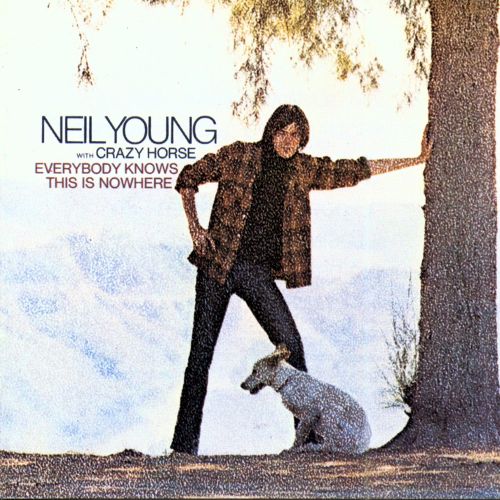
[vc_row][vc_column][vc_message message_box_color=”mulled_wine” icon_fontawesome=”fa fa-quote-left”]Many argue that it was on his sophomore record that Neil Young began truly finding his voice. This rocker nears the 10-minute mark showing that even early in his career, Young wasn’t willing to play by anyone’s rules aside from his own. Most haunting moment? After the song’s chorus is first performed, when he lingers a little too uncomfortably long on “…Shot her dead…Oooh…”
-Ken Kelley (ultimateclassicrock.com)[/vc_message][/vc_column][/vc_row]Composed by Neil Young, it was first released on his 1969 album with Crazy Horse, Everybody Knows This Is Nowhere. Young explained the context of the story in the liner notes of his 1977 anthology album Decade, stating that he wrote “Down by the River,” “Cinnamon Girl” and “Cowgirl in the Sand” while delirious in bed in Topanga Canyon with a 103 °F (39 °C) fever.
–
Be on my side,
I’ll be on your side,
baby
There is no reason
for you to hide
It’s so hard for me
staying here all alone
When you could be
taking me for a ride.
–
– -
The Night They Drove Old Dixie Down – The Band
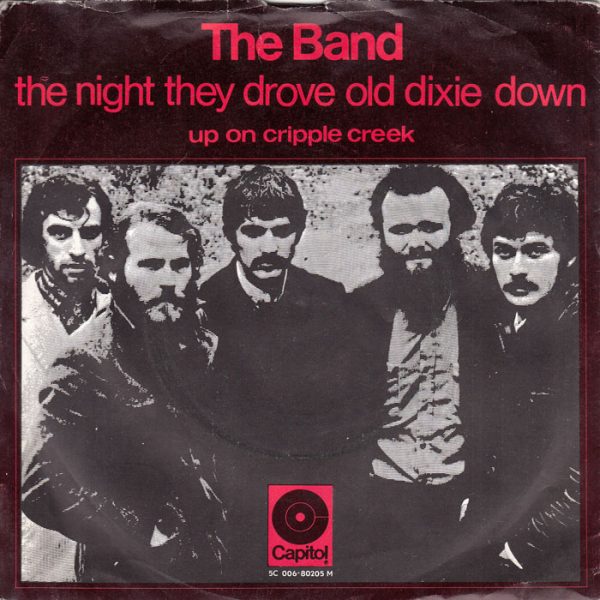
[vc_row][vc_column][vc_message message_box_color=”mulled_wine” icon_fontawesome=”fa fa-quote-left”]Nothing I have read … has brought home the overwhelming human sense of history that this song does. The only thing I can relate it to at all is The Red Badge of Courage. It’s a remarkable song, the rhythmic structure, the voice of Levon and the bass line with the drum accents and then the heavy close harmony of Levon, Richard and Rick in the theme, make it seem impossible that this isn’t some traditional material handed down from father to son straight from that winter of 1865 to today. It has that ring of truth and the whole aura of authenticity.
–Ralph J. Gleason (in the review in Rolling Stone (U.S. edition only) of October 1969) [/vc_message][/vc_column][/vc_row]Written by Robbie Robertson and originally recorded by the Canadian-American roots rock group the Band in 1969 and released on their eponymous second album. Levon Helm provided the lead vocals. The song is a first-person narrative relating the economic and social distress experienced by the protagonist, a poor white Southerner, during the last year of the American Civil War. Frequently appearing on lists of the best rock songs of all time, it has been cited as an early example of the genre known as roots rock.
–
Virgil Caine is the name, and I served on the Danville train
‘Till Stoneman’s cavalry came and tore up the tracks again
In the winter of ’65, we were hungry, just barely alive
By May the tenth, Richmond had fell, it’s a time I remember, oh so wellThe night they drove old Dixie down, and the bells were ringing
The night they drove old Dixie down, and the people were singin’ they went
La, la, la, la, la, la, la, la, la, la, la, la, la, la
–
– -
Girl From the North Country – Bob Dylan & Johnny Cash
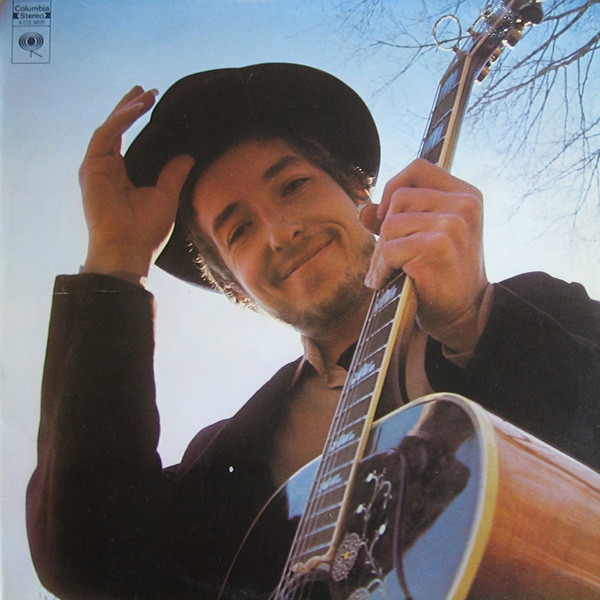 A song written by Bob Dylan. It was recorded at Columbia Recording Studios in New York City in April 1963, and released the following month as the second track on Dylan’s second studio album, The Freewheelin’ Bob Dylan. Dylan re-recorded the song as a duet with Johnny Cash in February 1969. That recording became the opening track on Nashville Skyline, Dylan’s ninth studio album.
A song written by Bob Dylan. It was recorded at Columbia Recording Studios in New York City in April 1963, and released the following month as the second track on Dylan’s second studio album, The Freewheelin’ Bob Dylan. Dylan re-recorded the song as a duet with Johnny Cash in February 1969. That recording became the opening track on Nashville Skyline, Dylan’s ninth studio album.
–
Well, if you’re travelin’ in the north country fair
Where the winds hit heavy on the borderline
Remember me to one who lives there
She once was a true love of mine
–
–
[vc_row][vc_column][vc_message message_box_style=”outline” icon_fontawesome=”fa fa-link” css_animation=”bounceIn”]
Check out:[/vc_message][/vc_column][/vc_row]
-
Pinball Wizard – The Who

A song written by Pete Townshend and performed by the English rock band The Who, and featured on their 1969 rock opera album Tommy. The original recording was released as a single in 1969 and reached No. 4 in the UK charts and No. 19 on the U.S. Billboard Hot 100.
–
Ever since I was a young boy
I’ve played the silver ball
From Soho down to Brighton
I must have played them all
But I ain’t seen nothing like him
In any amusement hall
That deaf dumb and blind kid
Sure plays a mean pin ball!
–
– -
Shhh/Peaceful – Miles Davis

Side A from In a Silent Way – a studio album by American jazz musician Miles Davis, released July 30, 1969 on Columbia Records. Produced by Teo Macero, the album was recorded in one session date on February 18, 1969 at CBS 30th Street Studio in New York City. Incorporating elements of classical sonata form, Macero edited and arranged Davis’s recordings from the session to produce the album. Marking the beginning of his “electric” period, In a Silent Way has been regarded by music writers as Davis’s first fusion recording, following a stylistic shift toward the genre in his previous records and live performances.
–
NA
–
– -
Life’s Little Ups and Downs – Charlie Rich
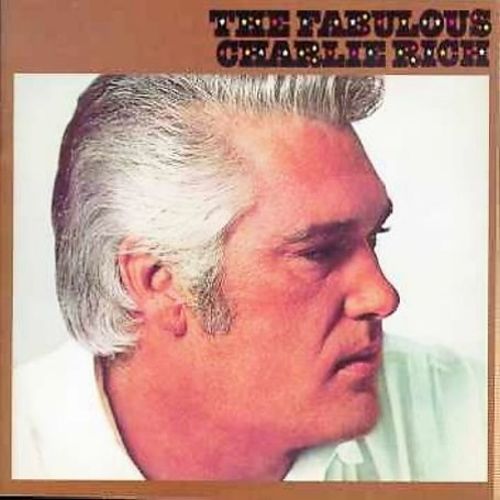
A song originally recorded by Charlie Rich. Written by his wife, Margaret Ann Rich, the song appears on his second Epic album, 1969’s The Fabulous Charlie Rich. His rendition spent eleven weeks on the country music charts in 1969, peaking at #41.
–
I don’t know how to tell her
That I didn’t get that raise in pay today.
And I know how much she wanted the dress
In Baker’s window, and it breaks my heart
To see her have to wait…
And cancel all her plans she made to celebrate
–
–
[vc_row][vc_column][vc_message message_box_style=”outline” icon_fontawesome=”fa fa-link” css_animation=”bounceIn”]
Check out:[/vc_message][/vc_column][/vc_row]
-
Space Oddity – David Bowie
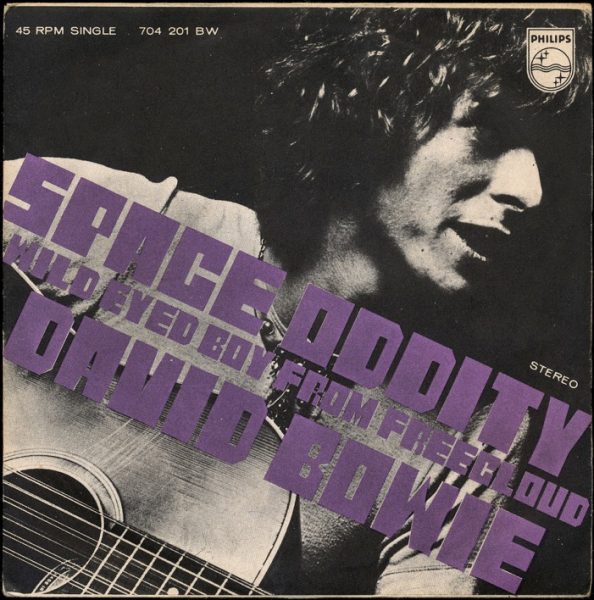
A song written and recorded by David Bowie. It was first released as a 7-inch single on 11 July 1969. It was also the opening track of his second studio album, David Bowie. It became one of Bowie’s signature songs and one of four of his songs to be included in The Rock and Roll Hall of Fame’s 500 Songs that Shaped Rock and Roll.
–
Ground Control to Major Tom
Ground Control to Major Tom
Take your protein pills and put your helmet on
Ground Control to Major Tom (ten, nine, eight, seven, six)
Commencing countdown, engines on (five, four, three)
Check ignition and may God’s love be with you (two, one, liftoff)
–
– -
Born on the Bayou – Creedence Clearwater Revival
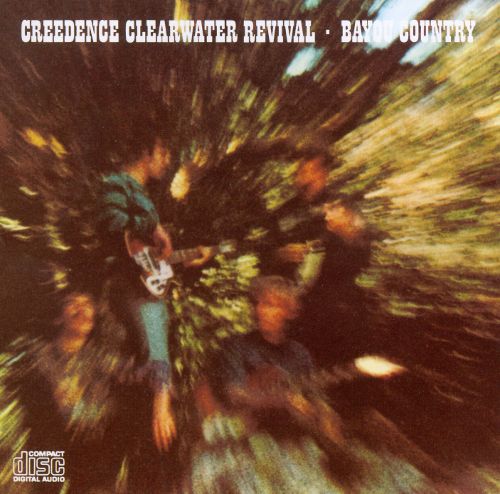
The first track on Creedence Clearwater Revival‘s second album, Bayou Country, released in 1969. It was released as the B-side of the single “Proud Mary” that reached #2 on the Billboard charts.
–
Now when I was just a little boy standin’ to my Daddy’s knee
My Poppa said son don’t let the man get you do what he done to me
‘Cause he’ll get you ’cause he’ll get you now now.
–
– -
Whole Lotta Love – Led Zeppelin
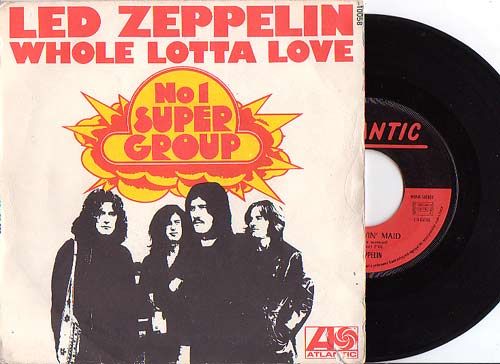
A song by English hard rock band Led Zeppelin. It is the opening track on the band’s second album, Led Zeppelin II, and was released in the United States, several countries in Europe, and Japan as a single; as with other Led Zeppelin songs, no single was released in the United Kingdom. The US release became their first hit single, being certified Gold on 13 April 1970, having sold one million copies. It reached number one in Germany, and number four in the Netherlands. Parts of the song were adapted from Willie Dixon‘s “You Need Love”, recorded by Muddy Waters in 1962; originally uncredited to Dixon, a lawsuit in 1985 was settled with a payment to Dixon and credit on subsequent releases.
–
You need cooling
Baby I’m not fooling
I’m gonna send ya
Back to schooling
–
–
[vc_row][vc_column][vc_message message_box_style=”outline” icon_fontawesome=”fa fa-link” css_animation=”bounceIn”]
Check out:[/vc_message][/vc_column][/vc_row]
-
Victoria – The Kinks
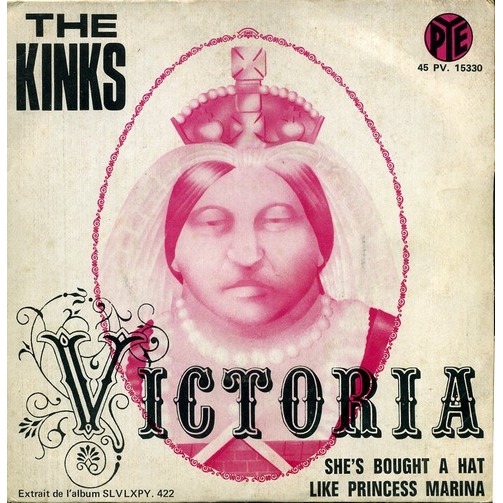
A song written by Ray Davies of The Kinks. It is the opening track on the band’s 1969 concept album Arthur (Or the Decline and Fall of the British Empire).In Ray Davies’ satirical style, the lyrics juxtapose the grim realities of life in Britain during the 19th century (“Sex was bad, and obscene/And the rich were so mean”) with the paternalist aspirations of the British Empire in the Victorian age (“From the West to the East/From the rich to the poor/Victoria loved them all”), and expresses the simple adulation of queen and country by the downtrodden working class (“Though I am poor, I am free/When I grow I shall fight/For this land I shall die”).
–
Long ago life was clean
Sex was bad, called obscene
And the rich were so mean
Stately homes for the Lords
Croquet lawns, village greens
Victoria was my queen
Victoria, Victoria, Victoria, ‘toria
–
– -
I Wanna Be Your Dog – The Stooges

A 1969 song by the American rock band The Stooges. The song is included on their self-titled debut album. Its memorable riff, composed of only three chords (G, F♯ and E), is played continuously throughout the song (excepting two brief 4-bar bridges). The 3-minute-and-9-second-long song, with its raucous, distortion-heavy guitar intro, pounding, single-note piano riff played by producer John Cale of The Velvet Underground, and steady, driving beat, established The Stooges at the cutting edge example of the heavy metal and punk sound.
In 2004, the song was ranked number 438 on Rolling Stone magazine’s list of the 500 Greatest Songs of All Time. Pitchfork Media placed it at number 16 on its list of “The 200 Greatest Songs of the 1960s”.
–
So messed up, I want you here
In my room, I want you here
Now we’re gonna be face-to-face
And I’ll lay right down in my favorite place
–
– -
Hungry Eyes – Merle Haggard
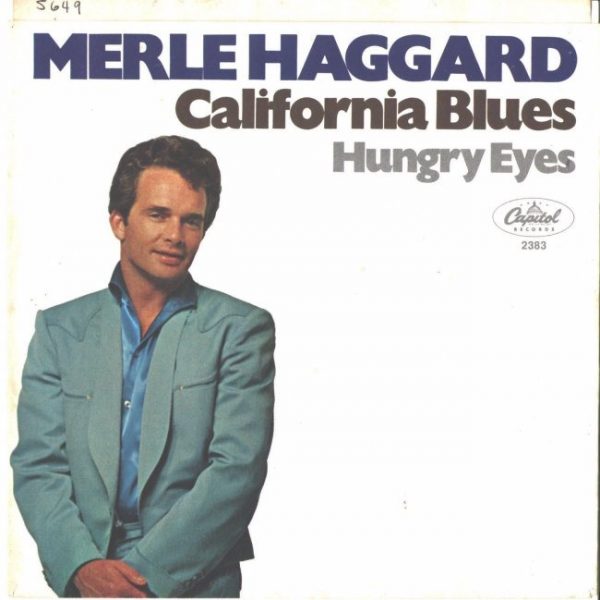
A song written and recorded by American country music artist Merle Haggard. It was released in December 1968 as the first single from the album A Portrait of Merle Haggard. The song was one of the most famous of his career.
–
A canvas covered cabin in a crowded labour camp
Stand out in this memory I revived;
Cause my daddy raised a family there, with two hard working hands
And tried to feed my mama’s hungry eyes.
–
– -
Homecoming – Tom T. Hall
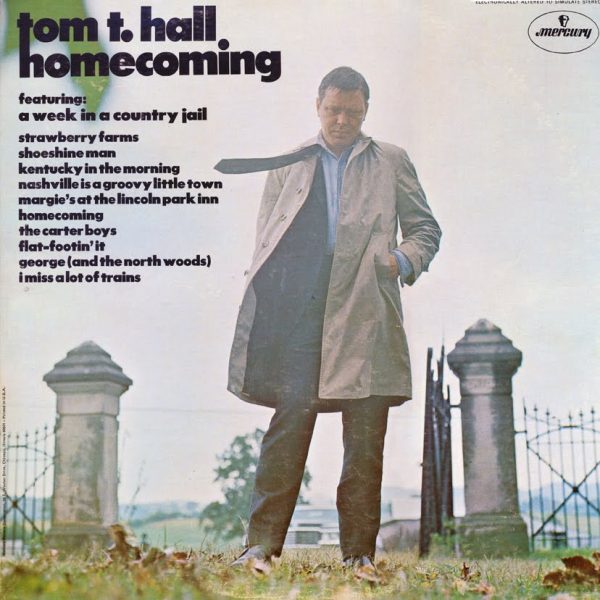
This beautiful song was released as a single in 1969 & on the album “homecoming” (November 1969).
–
I guess I should’ve written, Dad to let you know that I was coming home
I’ve been gone so many years I didn’t realize you had a phone
I saw your cattle coming in boy; they’re looking mighty fat and slick
I saw Fred at the service station told me that his wife is awful sick
–
– -
The Boxer – Simon & Garfunkel

This song by the American music duo Simon & Garfunkel from their fifth studio album, Bridge over Troubled Water (1970). Produced by the duo and Roy Halee, it was released as the lead single from the album on March 21, 1969. The song, written by Paul Simon, is a folk rock ballad that variously takes the form of a first-person lament as well as a third-person sketch of a boxer. Simon’s lyrics are largely autobiographical and partially inspired by the Bible, and were written during a time when he felt he was being unfairly criticized. The song’s lyrics discuss poverty and loneliness. It is particularly known for its plaintive refrain, in which the singer sings ‘lie-la-lie’, accompanied by a heavily reverbed drum.
–
I am just a poor boy
Though my story’s seldom told
I have squandered my resistance
For a pocket full of mumbles, such are promises
All lies and jests
Still a man hears what he wants to hear
And disregards the rest
–
– -
The Thrill is gone – B.B. King
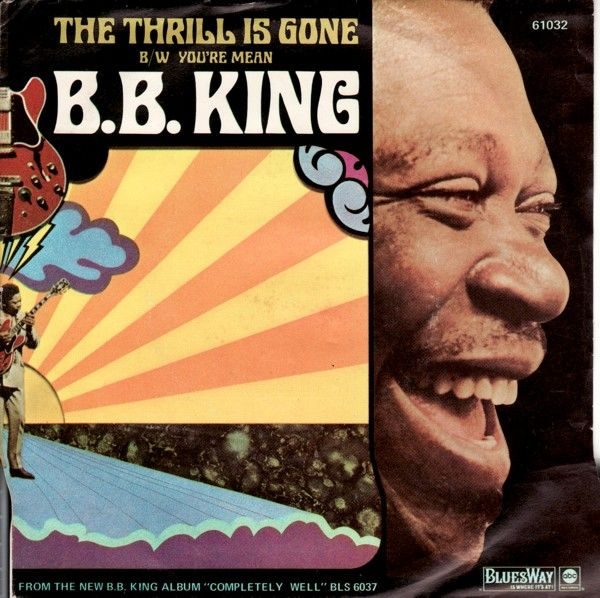
A slow minor-key blues song written by West Coast blues musician Roy Hawkins and Rick Darnell in 1951. Hawkins’ recording of the song reached number six in the Billboard R&B chart in 1951. In 1970 (released December 1969), “The Thrill Is Gone” became a major hit for B.B. King. Subsequently, many blues and other artists have recorded their interpretations of the song.
–
The thrill is gone
The thrill is gone away
The thrill is gone baby
The thrill is gone away
You know you done me wrong baby
And you’ll be sorry someday
–
–
These came close:
- Fancy – Bobbie Gentry
- The Weight – Aretha Franklin
- Hot Burrito #1 – Flying Burrito Brothers
- My Way – Frank Sinatra
- Love Man – Otis Redding
- Many Rivers to Cross – Jimmy Cliff
- Soul Deep – The Box Tops
- One Has My Name (The Other Has My Heart) – Jerry Lee Lewis
- Stand! – Sly & The Family Stone
- Suite: Judy Blue Eyes – Crosby, Stills & Nash
- Oh Well – Fleetwood Mac
- Galveston – Glen Campbell
- At the Crossroads – Sir Douglas Quintet
Spotify Playlist:
Sources:
- Wikipedia
- Heartaches by the Number: Country Music’s 500 Greatest Singles, written in 2003 by David Cantwell and Bill Friskics-Warren
- The Heart of Rock and Soul – The 1001 Greatest Singles Ever Made, by Dave Marsh, 1989
- 1001 Songs: You Must Hear Before You Die, by Robert Dimery, 2015
- 1001 Albums You Must Hear Before You Die, by Robert Dimery, 2010
- robertchristgau.com – Lists (Robert Christgau website)
[vc_row][vc_column][vc_separator][vc_btn title=”Alldylan / Borntolisten @ Facebook” color=”blue” i_icon_fontawesome=”fa fa-facebook-official” add_icon=”true” link=”url:https://www.facebook.com/JohannasVisions/||target: _blank|”][/vc_column][/vc_row][vc_row][vc_column][vc_message message_box_style=”outline” icon_fontawesome=”fa fa-link” css_animation=”bounceIn”]Check out:
[/vc_message][/vc_column][/vc_row]
-Egil
One thought on “1969: 20 Songs Released in 1969 You Must Hear”